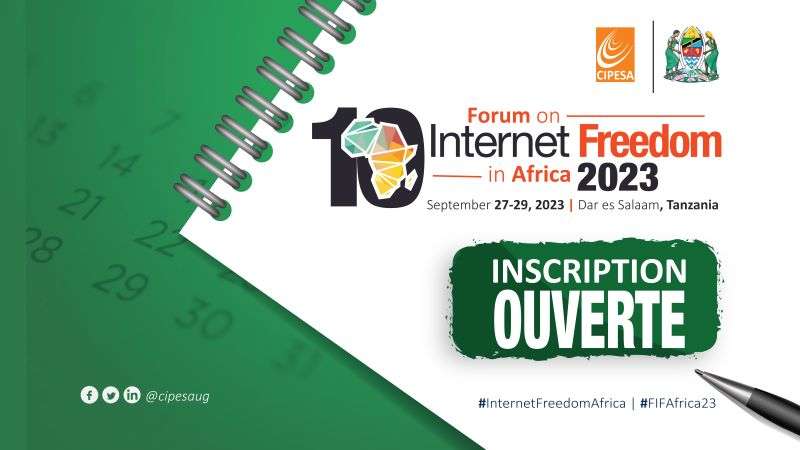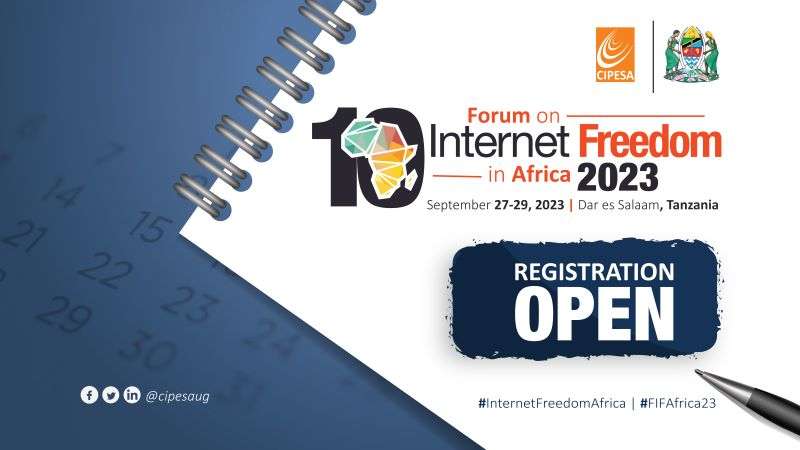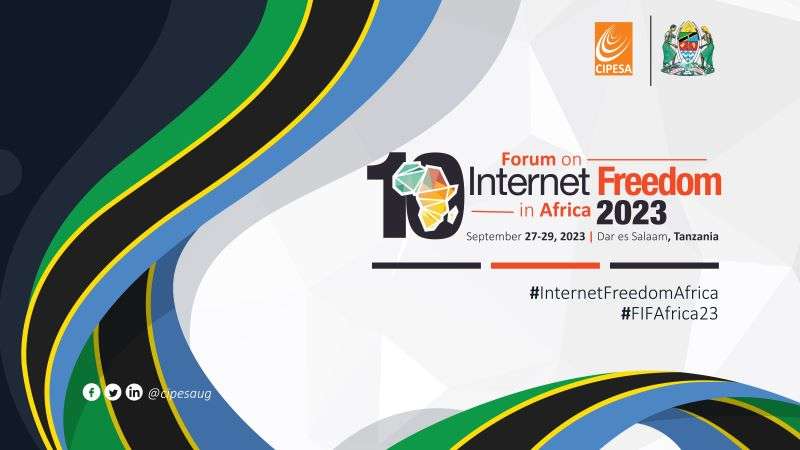Par FIFAfrica |
Êtes-vous passionné par la liberté d’Internet et les droits numériques en Afrique ? Souhaitez-vous rejoindre et vous engager avec la communauté qui fait avancer les droits numériques en Afrique ? Inscrivez-vous pour participer à l’édition 2023 du Forum sur la liberté d’Internet en Afrique (FIFAfrica23), et rejoignez une communauté de diverses parties prenantes de tout le continent et d’ailleurs, pour débattre des questions les plus urgentes et des opportunités pour améliorer les libertés en ligne. Les inscriptions sont ouvertes pour une participation en présentiel ou à distance !
FIFAfrica23 se tiendra à Dar es Salam, en Tanzanie, les 26 et 27 septembre (pré-événements uniquement sur invitation) et les 28 et 29 septembre (conférence principale) 2023. L’événement est organisé par la Collaboration sur la politique internationale des TIC pour l’Afrique de l’Est et australe (CIPESA), en partenariat avec le ministère tanzanien de l’information, des communications et des technologies de l’information. L’événement aura lieu au Hyatt Regency Dar es Salaam.
Le Forum marquera une décennie de rassemblement de décideurs politiques, de régulateurs, de défenseurs des droits de l’homme, d’universitaires, de représentants de la loi, de médias et d’autres acteurs pour discuter des lacunes, des préoccupations et des possibilités de promotion de la vie privée, de la libre d’expression, de la non-discrimination, de la libre circulation de l’information et de l’innovation en ligne.
Le programme de FIFAfrica23 comprend 10 thèmes sur une diversité de sujets émergeant des soumissions retenues dans le cadre d’un récent appel à sessions. Ces thèmes comprennent des panels, des présentations, des conférences éclair, des discours liminaires et des ateliers méticuleusement sélectionnés, à travers lesquels les participants au Forum pourront sonder le paysage des droits numériques et de la liberté de l’internet en Afrique, ainsi que les interventions collaboratives pour relever les défis et exploiter les opportunités d’un internet plus ouvert et plus inclusif en Afrique.
Vous pouvez vous inscrire ici et prendre note du Code de Conduite de l’événement et de la Note de voyage qui comprend des informations logistiques.
Ne manquez pas l’occasion de participer à cet événement historique et de contribuer à faire progresser la liberté de l’internet en Afrique !
Ne manquez pas de suivre @cipesaug sur les médias sociaux et de participer à la conversation en ligne en utilisant les hashtags #FIFAfrica23 #InternetFreedomAfrica.




